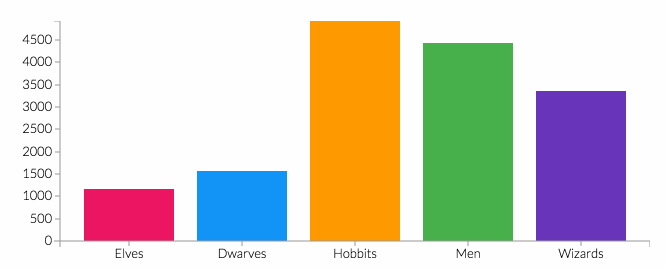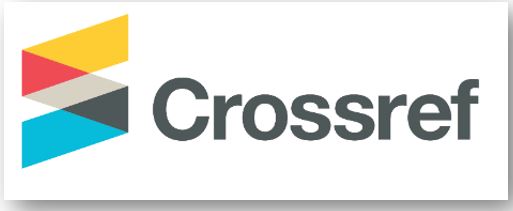Pendampingan Peran Orang Tua dan Perkembangan Bahasa Anak Usia Dini di Kampung Sindangsari
DOI:
https://doi.org/10.61231/jp2m.v1i4.183Keywords:
Role, Parents, Development, Language, ChildAbstract
The aim of this community service is to provide knowledge about the role of parents and children's language development. Socialization assistance activities are carried out through the preparation stage, implementation stage, program evaluation stage and reporting stage. The targets of this service are parents or guardians of TKA/TPA/DTA Bustanul Ulum students. The result of this service is that there are several roles of parents that can support early childhood language development, including (a) introducing good and correct greetings in the family, (b) practicing the pronunciation of short or simple sentences when receiving, requesting and asking questions. to other people, (c) inviting children to recognize objects around them, (d) inviting children to talk, (e) reading stories or fairy tales, and (f) implementing a democratic parenting style.References
Anggraini, N. (2021). Peranan Orang Tua Dalam Perkembangan Bahasa Anak Usia Dini. Metafora: Jurnal Pembelajaran Bahasa Dan Sastra, 7(1), 43. https://doi.org/10.30595/mtf.v7i1.9741
Anita Zahra. (2023). Peran Orangtua dalam Mendukung Perkembangan Bahasa Anak Usia Dini. Kompasiana. https://www.kompasiana.com/anitazahra/6537d14bee794a17d24d0312/perkembangan-orang-tua-dalam-mendukung-perkembangan-bahasa-anak-usia-dini
Hamzah. (2019). Metode Penelitian Kualitatif. Literasi Nusantara.
Ihda Fadila. (2023). Tahapan Perkembangan Bahasa Anak Usia Dini 1-5 Tahun. Hello Sehat. https://hellosehat.com/parenting/anak-6-sampai-9-tahun/perkembangan-anak/manfaat-anak-main-gadget/
Isna, A. (2019). Perkembangan Bahasa Anak Usia Dini. Al-Athfal, 2(2), 62–69.
Nabila Els Nur Azizah. (2023). Pengertian Anak Menurut Para Ahli dari Berbagai Sudut Pandang. Popmama. https://www.popmama.com/kid/4-5-years-old/nabila-els-nur-azizah/pengertian-anak-menurut-para-ahli-penjelasan-berbagai-sudut-pandang
Pahleviannur, M. R., Grave, A. De, Sinthania, D., Hafrida, L., Bano, V. O., & Saputra, D. N. (2022). Metodologi Penelitian Kualitatif. In Pradina Pustaka.
Pediasure. (2023). Orang Tua Wajib Paham 6 Aspek Perkembangan Anak Usia Dini. Pediasure. https://pediasure.co.id/article/aspek-perkembangan-anak-usia-dini
Prasanti, D. (2018). Penggunaan Media Komunikasi Bagi Remaja Perempuan Dalam Pencarian Informasi Kesehatan. LONTAR: Jurnal Ilmu Komunikasi, 6(1), 13–21. https://doi.org/10.30656/lontar.v6i1.645
Rohmania, A., Setiawan, D., & Khamdun, K. (2021). Pola Asuh Demokratis Orang Tua Dalam Memberikan Motivasi Belajar Siswa Selama Masa Pandemi Covid-19. Primary: Jurnal Pendidikan Guru Sekolah Dasar, 10(6), 1610. https://doi.org/10.33578/jpfkip.v10i6.8237
Ruli, E. (2020). Tugas dan Peran Orang Tua Dalam Mendidik Anak. Jurnal Edukasi Nonformal, vol.1(No.1), hlm.145.
Sriwahyuningsih, V., Mufadhal Barseli, & Desi Afrianti. (2022). Meningkatkan Kemampuan Berbicara Melalui Media Gambar Pada Anak Taman Kanak-Kanak (TK) Tunas Palma Kerumutan. Jurnal Pengabdian Kepada Masyarakat Radisi, 2(3), 84–89. https://doi.org/10.55266/pkmradisi.v2i3.216
Suciati, S. (2018). Peran Orang Tua Dalam Pengembangan Bahasa Anak Usia Dini. ThufuLA: Jurnal Inovasi Pendidikan Guru Raudhatul Athfal, 5(2), 358. https://doi.org/10.21043/thufula.v5i2.3480
Susanto, A. (2012). Perkembangan Anak Usia Dini. Kencana.
Tomia, M., Mahmud, N., & Agustan Arifin, A. (2020). Analisis Perkembangan Bahasa Anak Melalui Media Pembelajaran Video Interaktif Kelompok A Di TK Al-Khairat Skep Kota Ternate Tengah. Jurnal Ilmiah Cahaya Paud, 2(2), 1–14. https://doi.org/10.33387/cp.v2i1.4273
Wiyani, A. N. (2014). Psikologi Perkembangan Anak Usia Dini. Gava Media Klitren Lor GK III.
Yudithia. (2021). 6 Kegiatan untuk Mengembangkan Bahasa Anak Usia Dini yang Seru. Catatan Tanpa Kertas. http://yd.blog.um.ac.id/6-kegiatan-untuk-mengembangkan-bahasa-anak-usia-dini-yang-seru/
Zubaidah, E. T. (n.d.). Pengembangan Bahasa Anak Usia Dini. Pendidikan Dasar dan Prasekolah. Fakultas Ilmu Pendidikan, Universitas Negeri Yogyakarta.
Downloads
Published
Issue
Section
License
Copyright (c) 2023 Dita Kumala Sari

This work is licensed under a Creative Commons Attribution 4.0 International License.
You are free to:
- Share — copy and redistribute the material in any medium or format for any purpose, even commercially.
- Adapt — remix, transform, and build upon the material for any purpose, even commercially.
- The licensor cannot revoke these freedoms as long as you follow the license terms.
Under the following terms:
- Attribution — You must give appropriate credit , provide a link to the license, and indicate if changes were made . You may do so in any reasonable manner, but not in any way that suggests the licensor endorses you or your use.
- No additional restrictions — You may not apply legal terms or technological measures that legally restrict others from doing anything the license permits.
Notices:
You do not have to comply with the license for elements of the material in the public domain or where your use is permitted by an applicable exception or limitation .
No warranties are given. The license may not give you all of the permissions necessary for your intended use. For example, other rights such as publicity, privacy, or moral rights may limit how you use the material.















